The old Listing Quality Control workflow struggled to meet the growing demand for trusted listings. Advocating for this project, I reimagined the workflow, significantly enhancing trust for millions in our fast-paced e-commerce environment.
Shopee
6 months
Product Design,
User Research,
Content Design,
Product Strategy
1 Designer,
4 FE Developers,
8 BE Developers
Data-driven Design,
Promote Continuously Iteration
Before any merchandise goes online, it must be approved by agents on the platform. However, the slow process has caused delays in listings going live and a loss of profits, especially during COVID-19, when Shopee's tenfold growth significantly increased the workload.
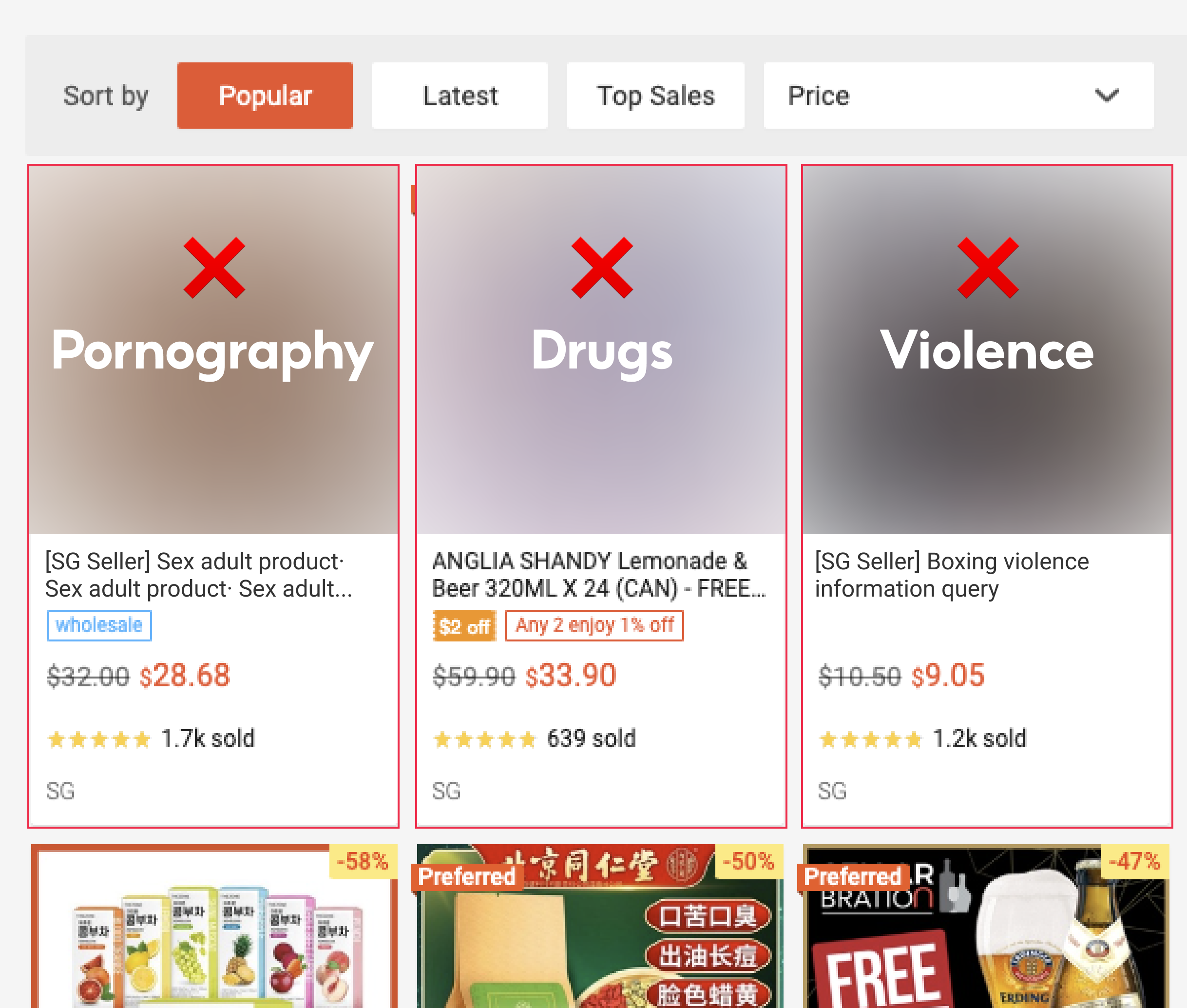
With real-time listing, profits returned to the right track

Saved a significant amount of money by preventing the expansion of the QC agent team

The accuracy of review results increased to 92%, strengthening our ability to provide trustworthy listings

I proactively conduct workshops where we establish two main goals:
1. Simplify the review workflow to reduce time
2. Minimize manual errors to increase accuracy

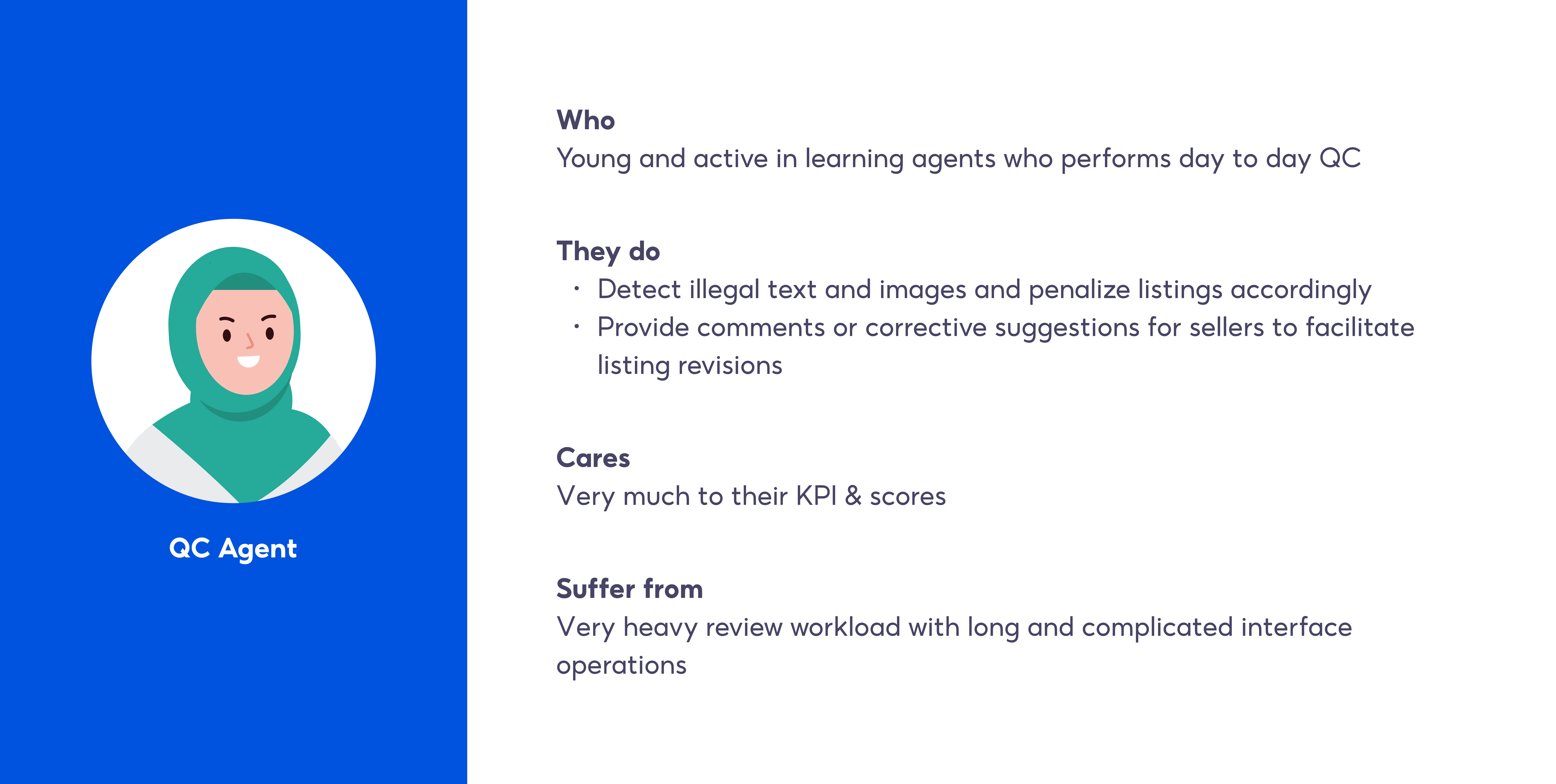
# of Interview
# of Survey
# of Usability test
Research Content: We conducted 32 user interviews and surveys with 350 users, complemented by usability tests with 15 users, to gather comprehensive insights.
Data Synthesis: After analyzing the feedback, I gained a clear understanding of who our users are and what their main problems are, which guided us in focusing on the key challenge in the product.
Each JTBD workflow takes 10 seconds during the submit and task-switch phases. What's worse, this occurs thousands of times per day, frustrating users. They have to deal with numerous redundant clicks and page switches

Scroll and review multiple listings in a single batch.
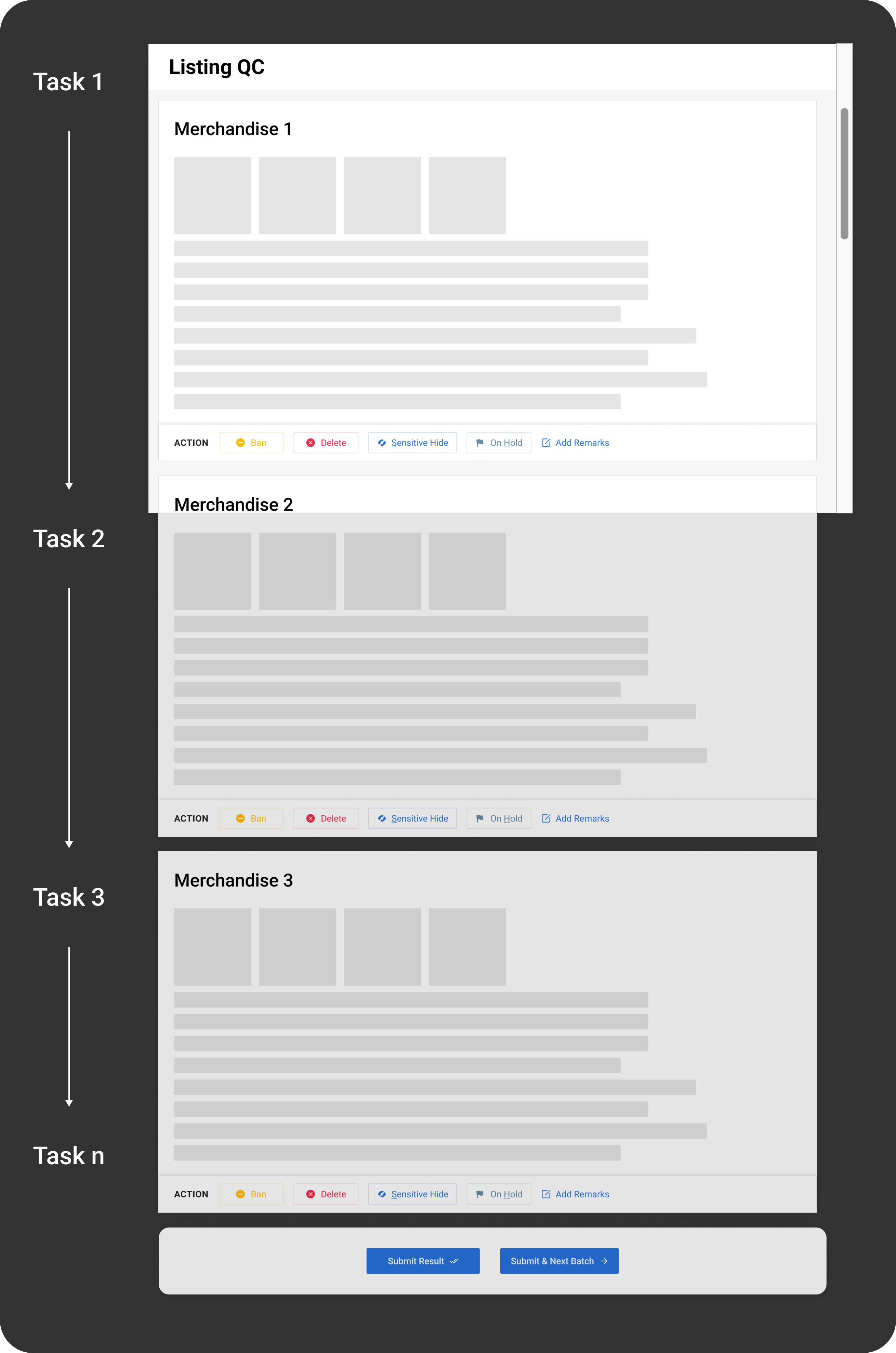
5 1 page, 8 1 actions for one task switch
Least page switches and clicks
Easy dev implementation

I conducted a usability test with 10 users using my quick prototyping. For each concept, we tested a batch of 5 review tasks
The results showed that users were able to complete reviews with Concept 3 in the shortest time, 2 minutes, and achieved the highest SUS score of 84 points.
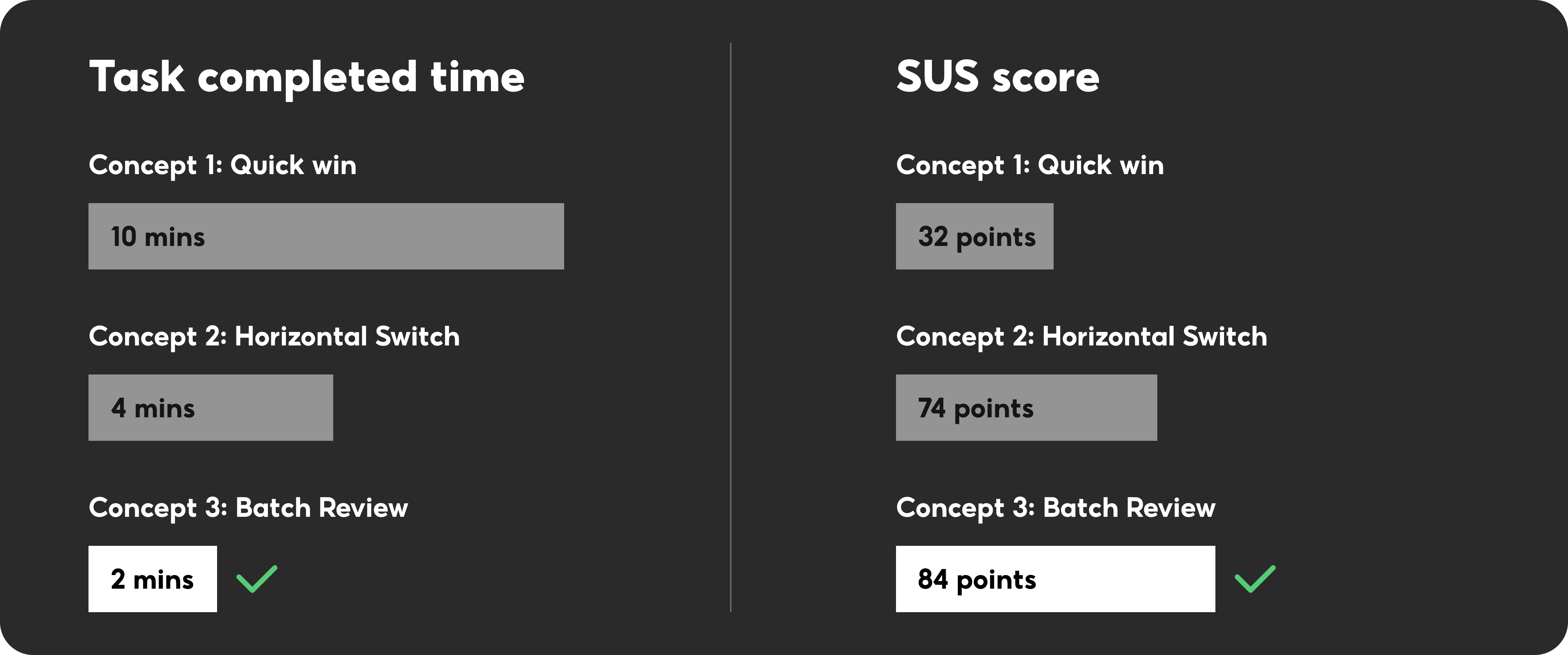
To make a more rigorous decision, I collaborated with Product Managers and Developers to evaluate usability, business impact, and development cost. We reached a consensus on the 'batch review' solution, as it offers the highest usability and business benefits while maintaining a reasonable development cost.
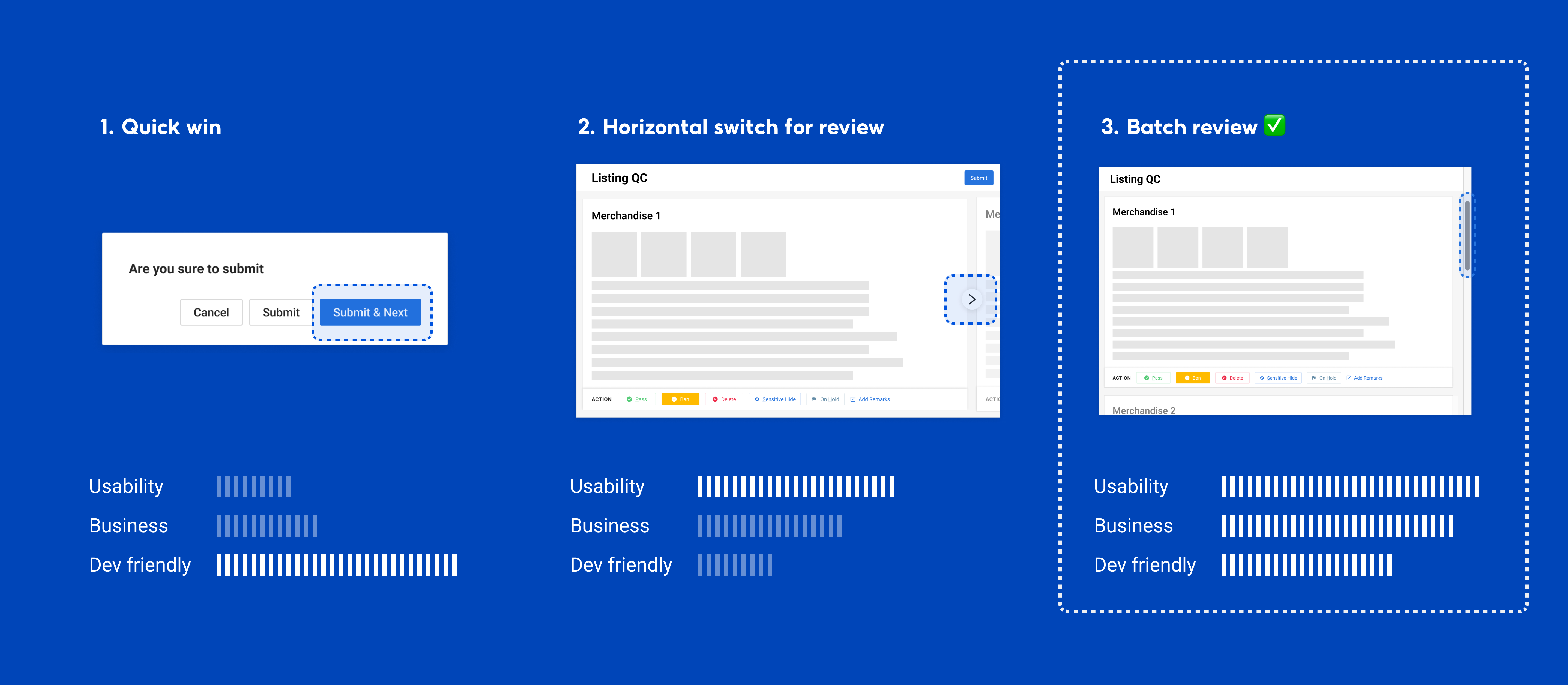

Analysis revealed a striking statistic: 90% of merchandise listings already comply with our standards, resulting in a high volume of unnecessary 'pass' actions by users.

I leveraged data-driven insights to innovate our workflow by introducing an intuitive scrolling mechanism combined with an 'auto-pass' function. This approach significantly streamlined the review process, allowing QC agents to focus their expertise on items that truly required attention.
Endless clicking redundant pass actions
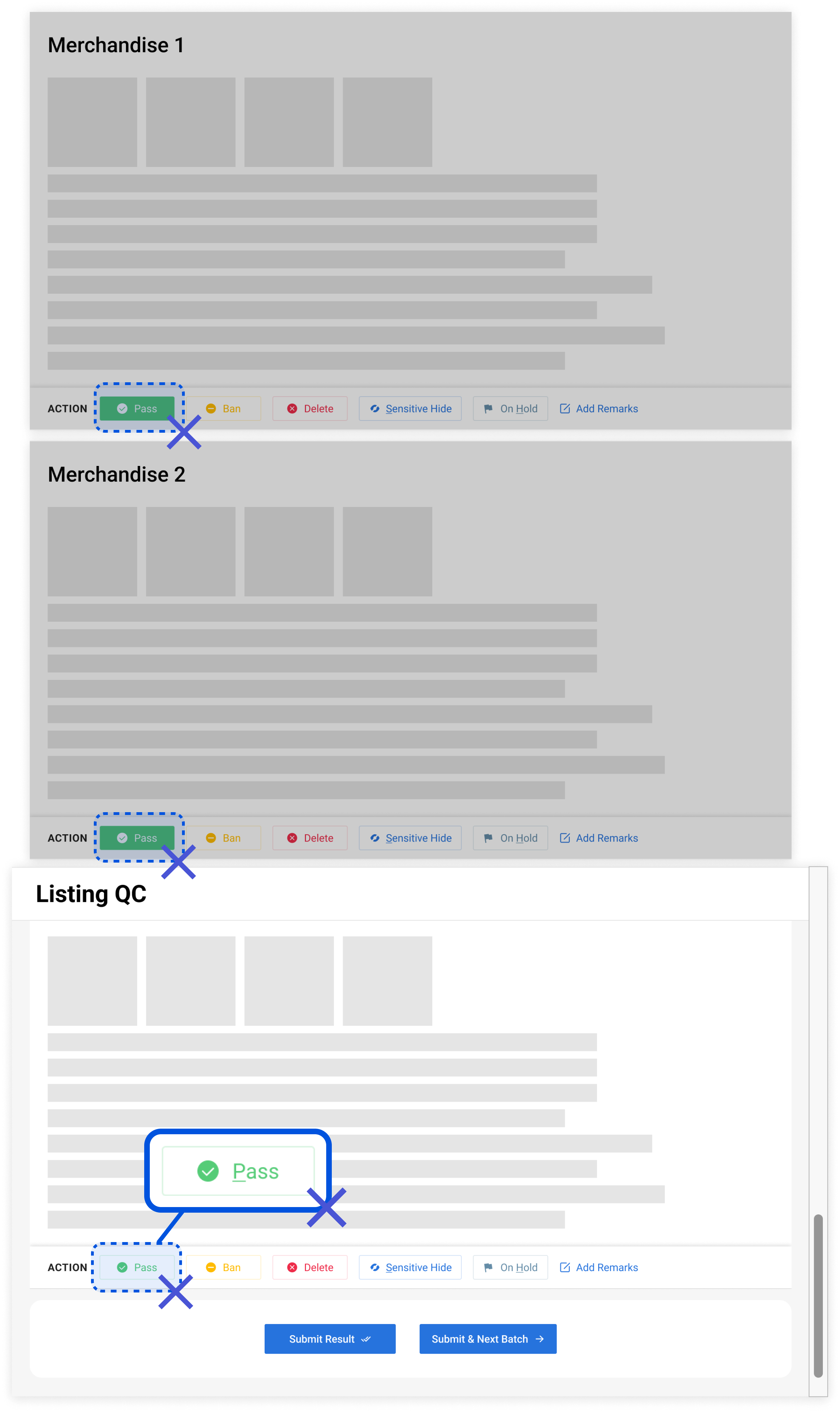
Reduce 90% of the clicking rate
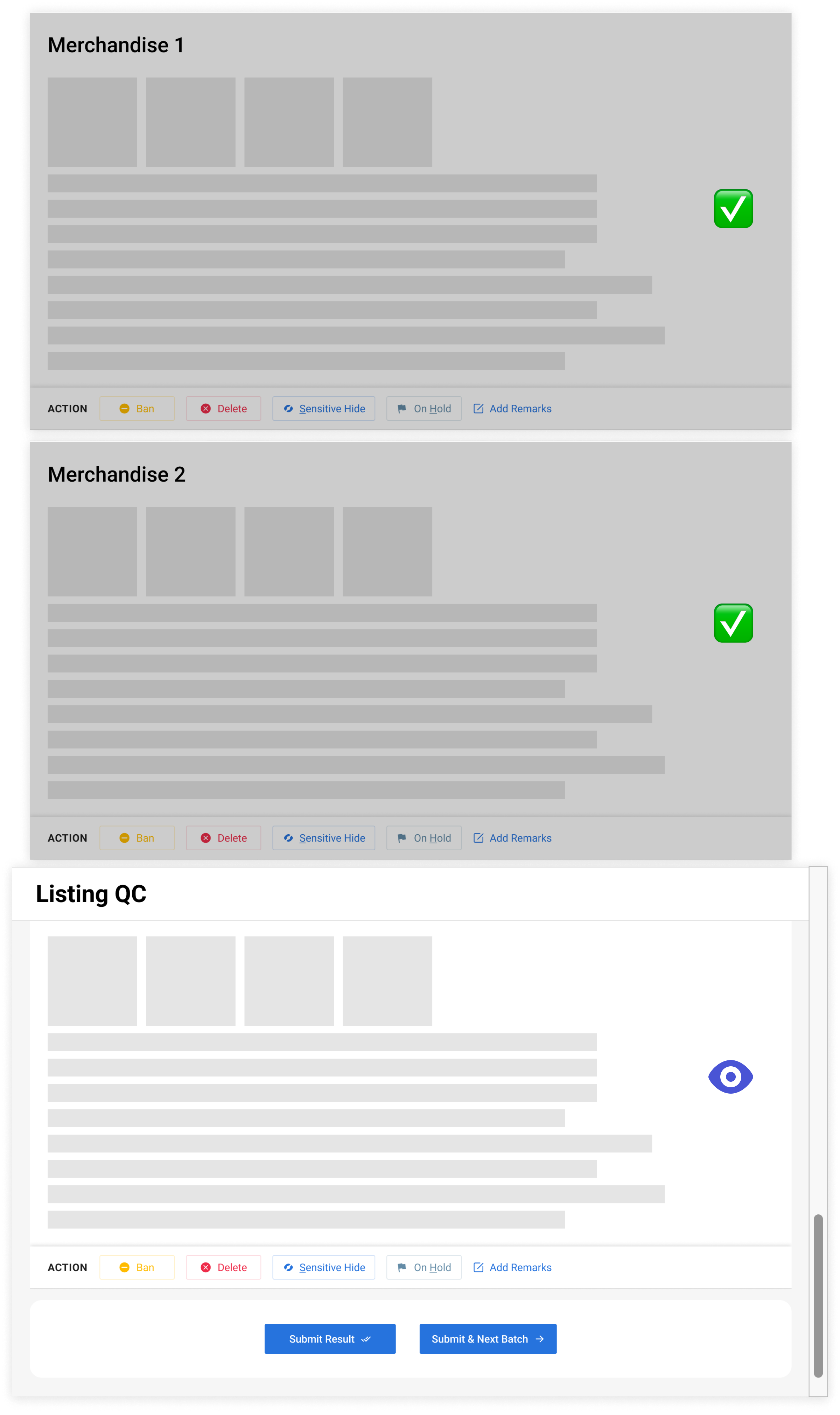
In ID, agents took an average of 3 minutes to find violations in overwhelming content, akin to searching for a needle in a haystack.
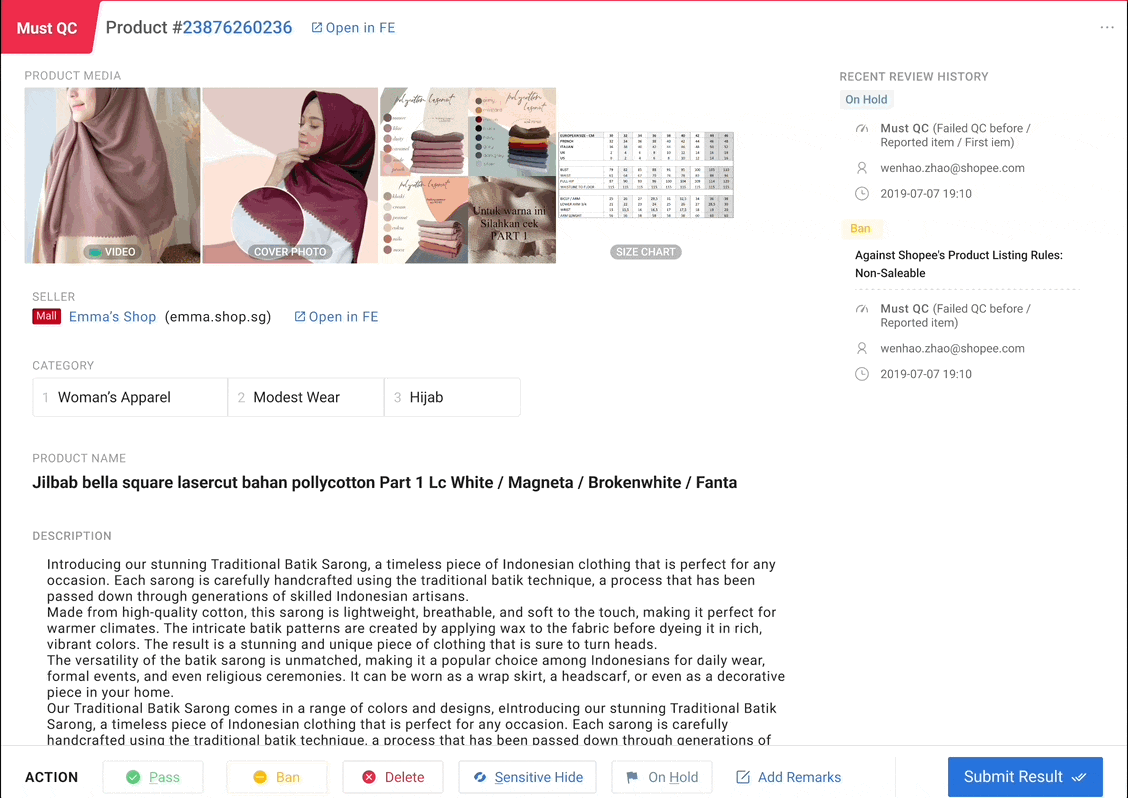
With this new refinement, agents now take only 45 seconds to identify violations, a significant improvement versus the previous 3 minutes.
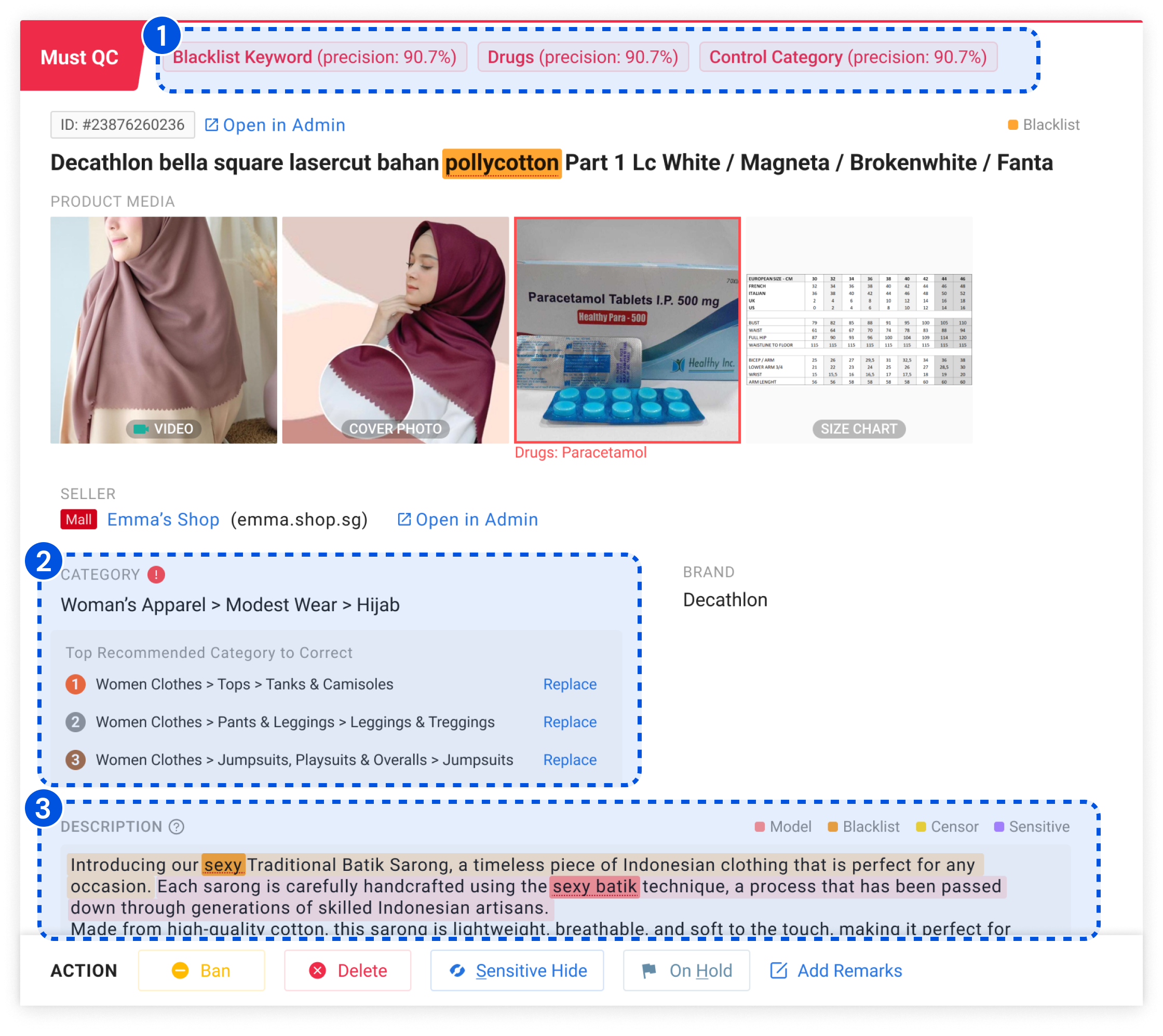
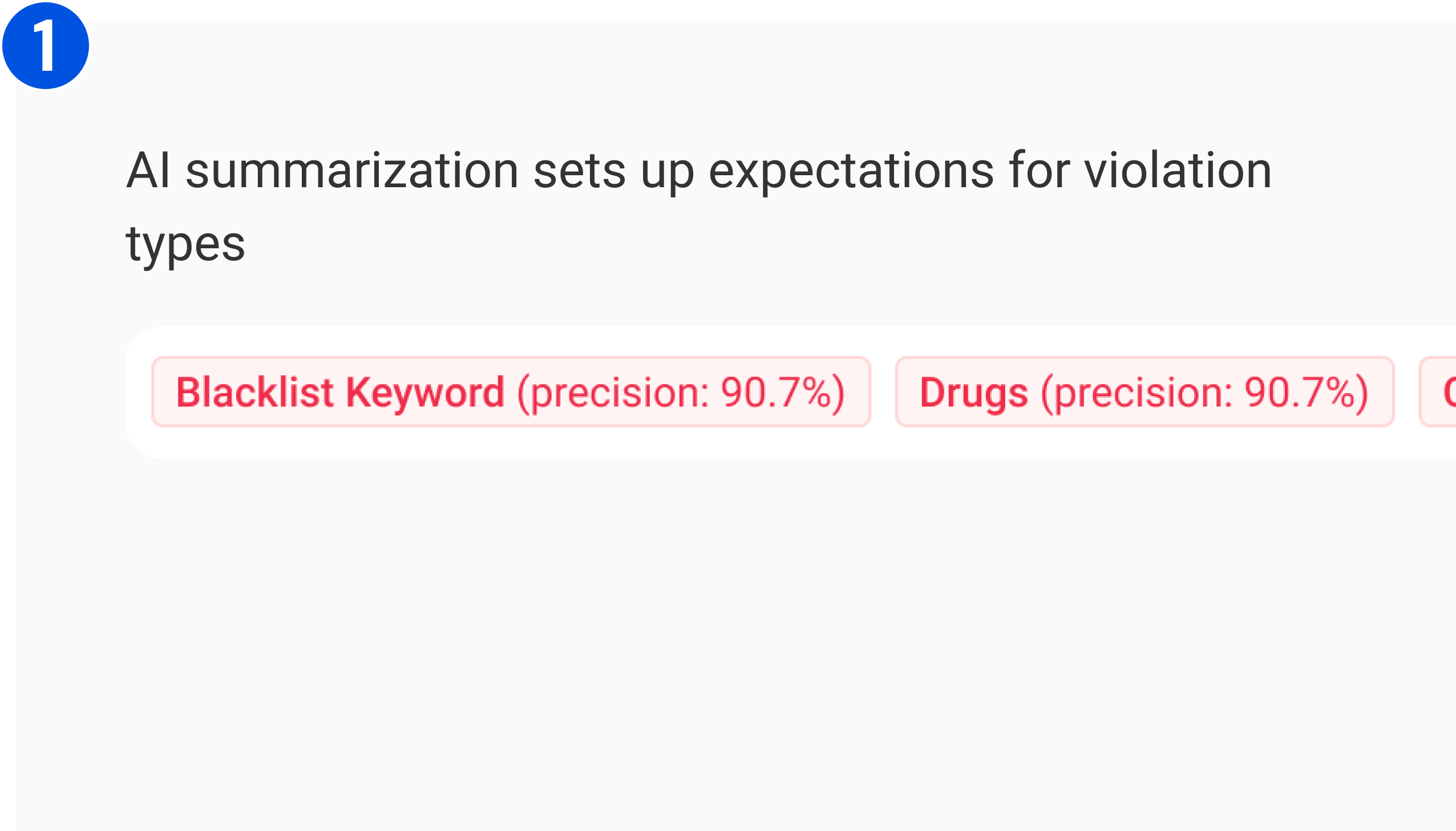
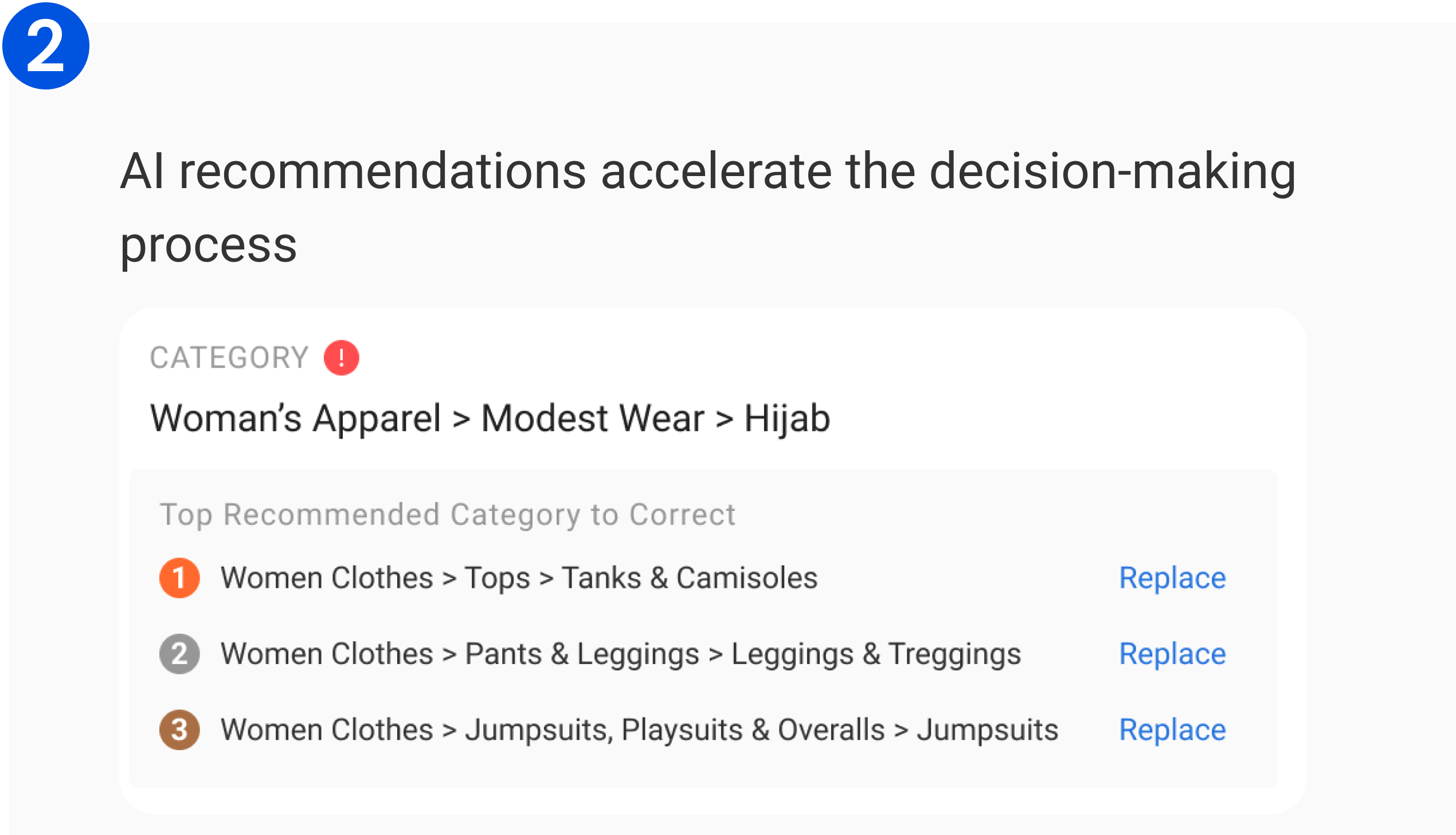
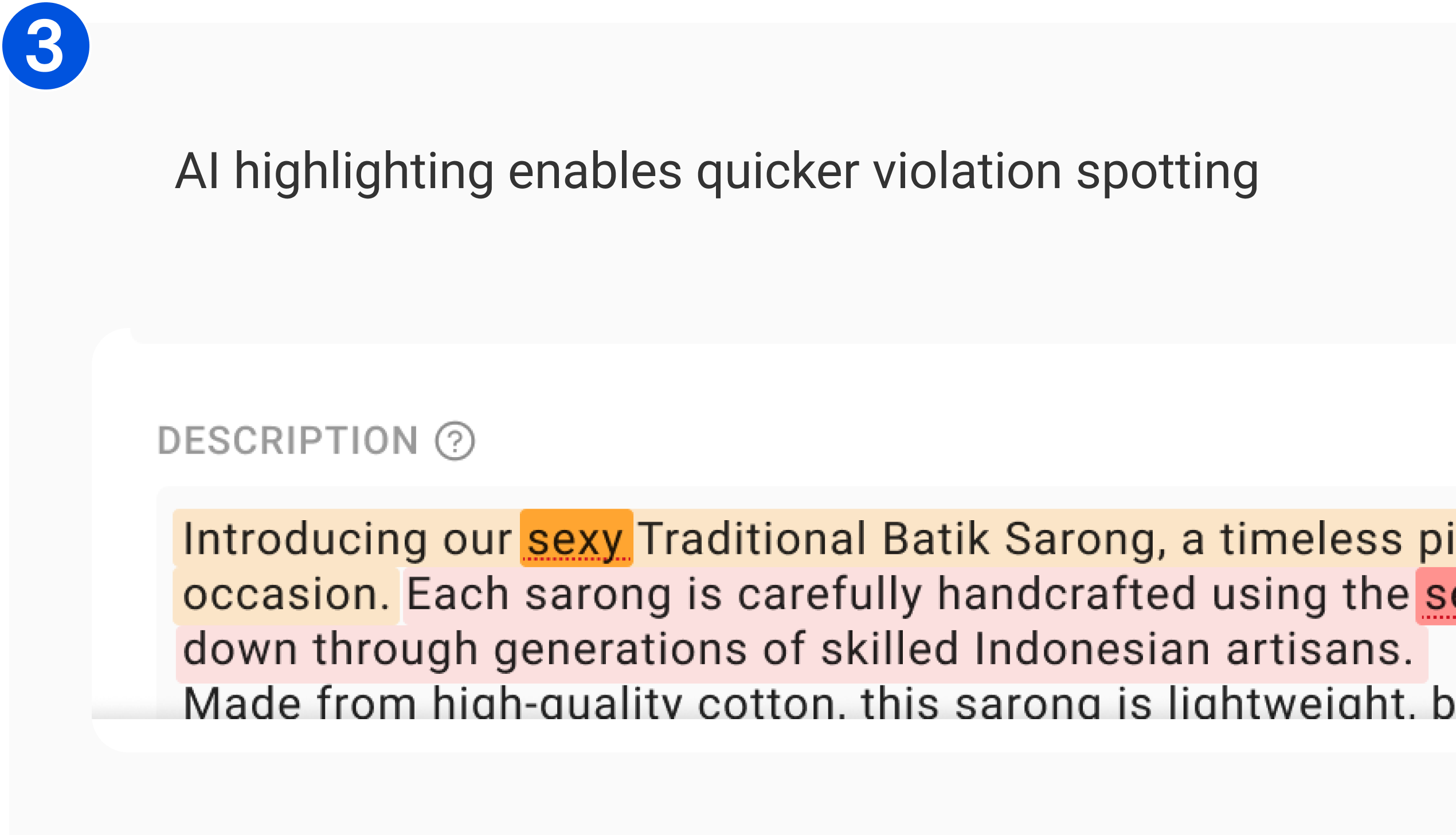
To facilitate the adaptation of Listing QC to the languages and cultural contexts of 11 global markets, I partnered with a visual designer and the development team to create a full design system from the ground up.
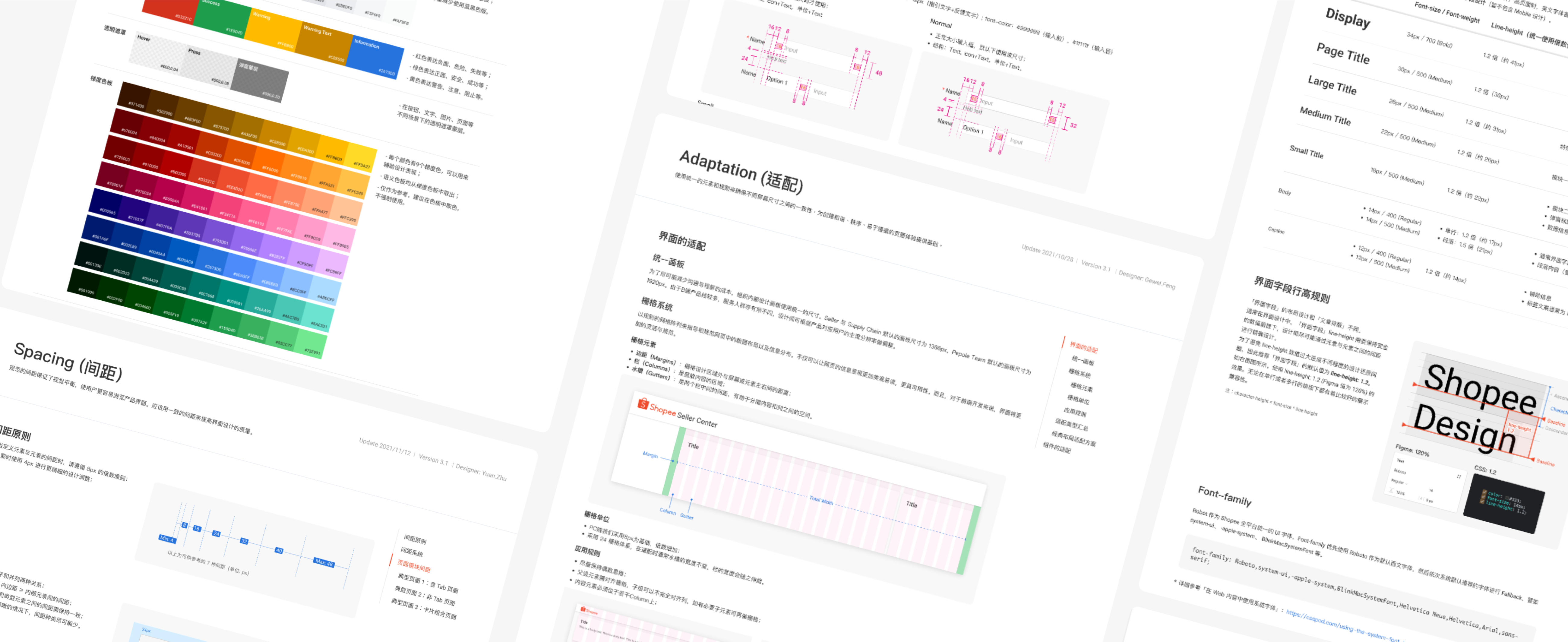
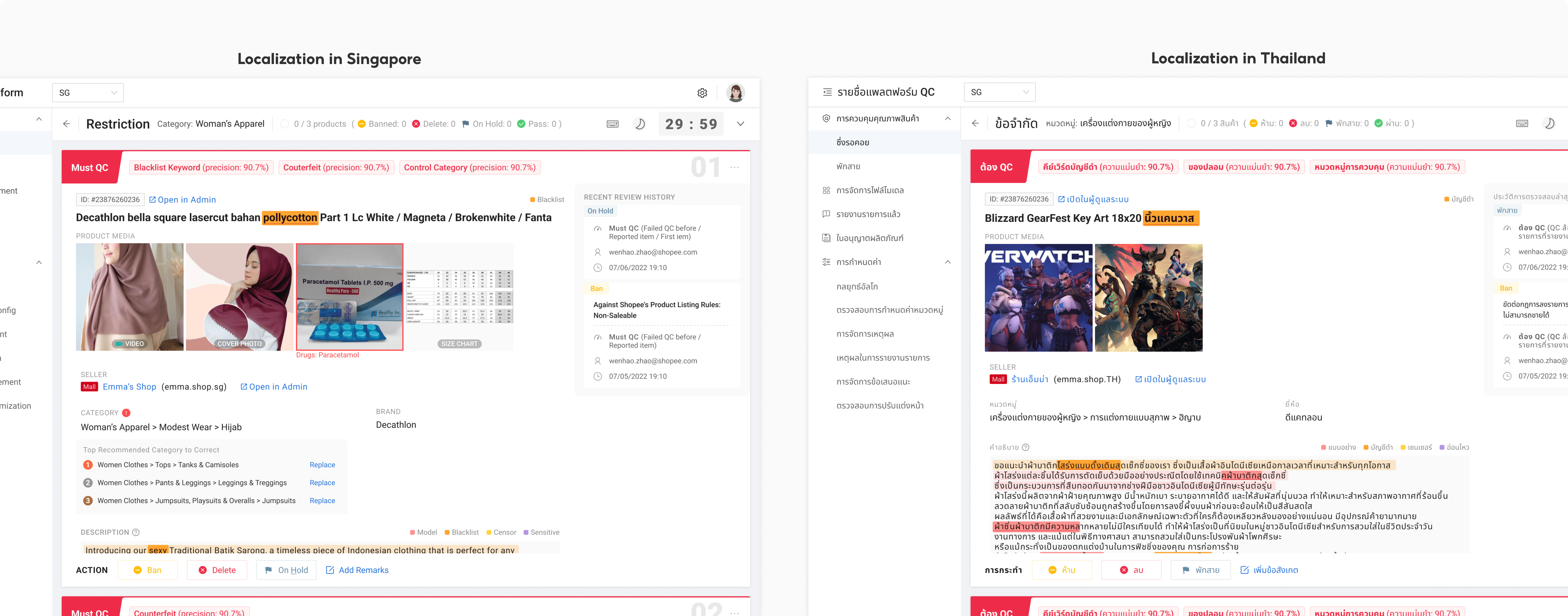
Our goal is to fully automate the listing review process, eliminating the need for human involvement while maintaining high precision through advanced AI technologies. In the future, we envision a system where listings could be published within just a few minutes.
Leverage manual review data to train machine learning models, enabling the AI to continuously improve its detection accuracy by learning from previous decisions. This will boost both the speed and precision of the review process over time.